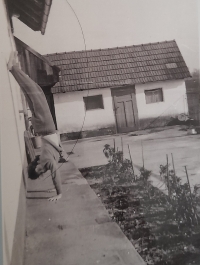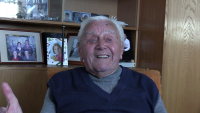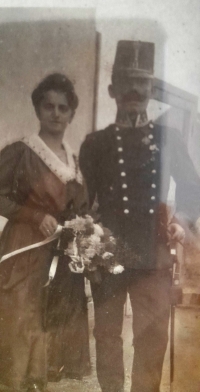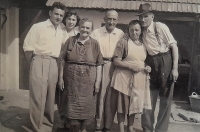1953 monetary reform: We forced people to leave the square under threat of military prison

Download image
Ladislav Kavka was born on 11 November 1926 in Litol (nowadays, it is part of Lysá nad Labem) to a family of Antonín Kavka and Antonie Kavková in a house of a breeding station where the family lived. His father worked his whole life as a smith and a blue-collar worker at Litol Sugar Factory. Ladislav Kavka narrates his life in Protectorate, he remembers, for example, the Jewish assembly point in Lysá nad Labem, the Abeles family from Litol, the Heydrich Terror, and also post-war people’s courts. From 1932 to 1941 he attended elementary school in Litol and town school in Lysá nad Labem. In 1941 he started to study to become a machine locksmith at Českomoravské Engineering Works in Libeň, and he worked in Pragovka. From 1948 to 1952 he studied at the Higher Industrial School of Mechanical Engineering in Prague, from which he graduated with a secondary school leaving exam. As a member of the Sokol Movement, he took part in Sokol Slet in 1948. During the 1948 elections, he went behind a screen with his ballot papers, which was considered resistance to the Communist government. In 1951 he got married and started a family. He convinced his wife to resign from the Czechoslovak Socialist Youth Union and he did not join the Party. In 1953 he enlisted in a tank unit in Stříbro. Here, at the time of the monetary reform in June 1953, he experienced an emergency trip to Pilsen, where soldiers of the basic military service were ordered to force demonstrators to leave the square to the side streets. After his military service, he wanted to work for the Research Institute of Construction and Construction Machinery, but he was at first not hired because of political reasons. Finally, he was hired to work as a welder, he worked as a blue-collar worker at the Research Institute for twenty-eight years. In 1968, he and other employees were at the assembly in Halberstadt, eastern Germany when the Warsaw Pact Troops invaded Czechoslovakia in August 1968. They were later placed in a detention camp and transferred from Germany under surveillance. In the 1980s, he was employed in the Construction of roads and railways company where he as a welder worked at a construction site of a bridge in Brandýs nad Labem, and later when he retired, he worked in Litol Sugar Factory for seven years. He and his wife Milena raised two children. Ladislav Kavka was intensively devoted to music. When he was young, he learned to play the trumpet from private teachers, and since the 1950s he has played in various local musical ensembles, at dance parties, at celebrations of public holidays, and also at funerals.
































